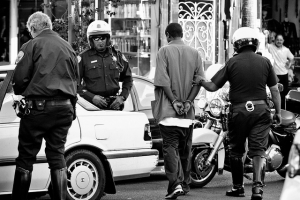Courts evaluate whether running from police is grounds for "reasonable suspicion"

A high profile Massachusetts court case concluded this week, with the state’s Supreme Judicial Court ruling that black men in the Boston area may have legitimate reasons for running from the police that do not necessarily include being guilty of a crime.
The ruling will potentially impact ‘stop and search’ practices in the state. While all citizens have a right to walk or run away from the police, doing so can contribute to an officer finding “reasonable suspicion” that a person has committed a crime. Having “reasonable suspicion” can be used to justify stopping an individual and subjecting them to a search.
However, in light of the recent decision, flight alone is unlikely to continue to constitute sufficient grounds for “reasonable suspicion” if the individual in question is a black male. This means officers will have to have additional grounds, such as an individual closely matching the description of a crime suspect, before they can conduct search.
Supporters of the ruling point to statistics indicating that police disproportionately target black males, even when the data is controlled for crime rates and criminal history. They say this demonstrates that black men may legitimately wish to avoid contact with police even if they have not committed a crime, and that the ruling therefore helps to protect their civil rights, particularly the guarantee against illegal search and seizure.
Opponents counter that the data cited does not take into account individual circumstances that might justify the stops and searches. They argue that the ruling will handicap police officers and leave more illegal weapons or drugs on the street.











Comments
Login or register to post comments